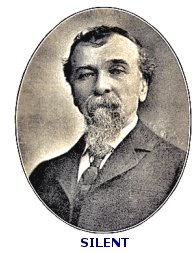 Times
the day after the meeting recites.
Times
the day after the meeting recites.
Thursday, June 27, 2007
Page 15
REMINISCING (Column)
M & M in 1897 Undertakes to Cut Unemployment
By ROGER M. GRACE
By 1897, the nation was coming out of a depression that followed the “Panic of 1893” caused by a run on the gold supply. But here in Los Angeles, no economic upsurge was evident; the ranks of the unemployed was swelling.
Estimates varied from 2,000 to 5,000 men who were out of work. Local government had done nothing, and charities were running out of funds.
Articles in the archives of the Los Angeles Times reflect the crucial role played by the Merchants’ and Manufacturers’ Assn. in responding to the crisis.
After discussion at its Jan. 25 Board of Directors meeting, the M & M directed its secretary, William H. Knight, to dispatch a letter to the Los Angeles City Council calling for the creation of jobs on public works projects. The letter read, in part:
“The directors of this association...believe that the gravity of the situation calls for some action on the part of your honorable body without further delay....
“[T]here is much useful work that needs to be done, such as keeping the business streets in better order, macadamizing [that is, paving] the suburban roadways, improving the parks and boulevards, etc.
“Assistance thus rendered is not to be construed as charity, for it will enable the recipient to help himself, regain his self-respect, and remain an honorable member of society.”
That letter did not precipitate action. At a meeting of the M & M board on Feb. 27, Mayor Meredith P. Snyder advised the directors that city finances were dry, and the city would be cutting its payroll, not adding to it. Endorsing the suggestion in the M & M’s letter that crews of workers be gathered to do street improvement work for pay, he suggested that private donations be sought to finance the project.
“Judge Silent…wanted the Merchants’ and Manufacturers’
Association to take charge of the movement,” an article appearing in the Times
the day after the meeting recites.
Times
the day after the meeting recites.
The directors agreed unanimously to do just that.
The man known as “Judge Silent” was local attorney Charles Silent, who had been a federal judge in Arizona. It was he who was to lead the M & M’s efforts.
The organization said in a press statement:
“We must not, we cannot longer withhold some pecuniary assistance from hungry men and those dependent upon them.
“The time for action has come.”
It went on to say:
“The Merchants’ and Manufacturers’ Association has felt the necessity of attacking the vexed problem in a practical way and giving the well-to-do and kind-hearted people of this city an opportunity to contribute to a relief people of this city an opportunity to contribute to a relief fund that would be wisely and humanely expended for the actual relief of suffering, and not be wasted upon professional tramps.
“With this end in view the board of directors has assumed the responsibility of accounting for a fund to be contributed to by the business and professional men, the property-owners, the manufacturers, and all causes who desire to have a great evil eradicated in our midst, and who sincerely wish to assist in alleviating suffering and distress.”
A Times editorial that morning says:
“The Merchants’ and Manufacturers’ Association has taken hold of the problem in a businesslike way, and will almost certainly carry it forward to success.”
The editorial notes that a proposal was under discussion for a $150,000 city bond issue to finance development of Griffith Park (on 3,015 acres of land which Silent had persuaded a client, Griffith J. Griffith, to donate to the public). Snyder had slated a mass meeting to discuss the Griffith Park project and other means of providing employment.
The editorial observes:
“The bonding question, however, is distinct and separate from the plan for immediate relief inaugurated by the Merchants’ and Manufacturers’ Association. The bonding plan, if carried out, would require several months for its full fruition. In the mean time, deserving men might starve to death, or become criminals. Therefore, there is a pressing need that the scheme for immediate relief be carried forward with all possible dispatch. It is in the hands of practical men, who know what they are about, and who have a full realization of the urgency of the occasion.”
Could such a novel approach—a private organization acquiring private funds to operate a public project—succeed? It did, as I’ll discuss next week.
Copyright 2007, Metropolitan News Company